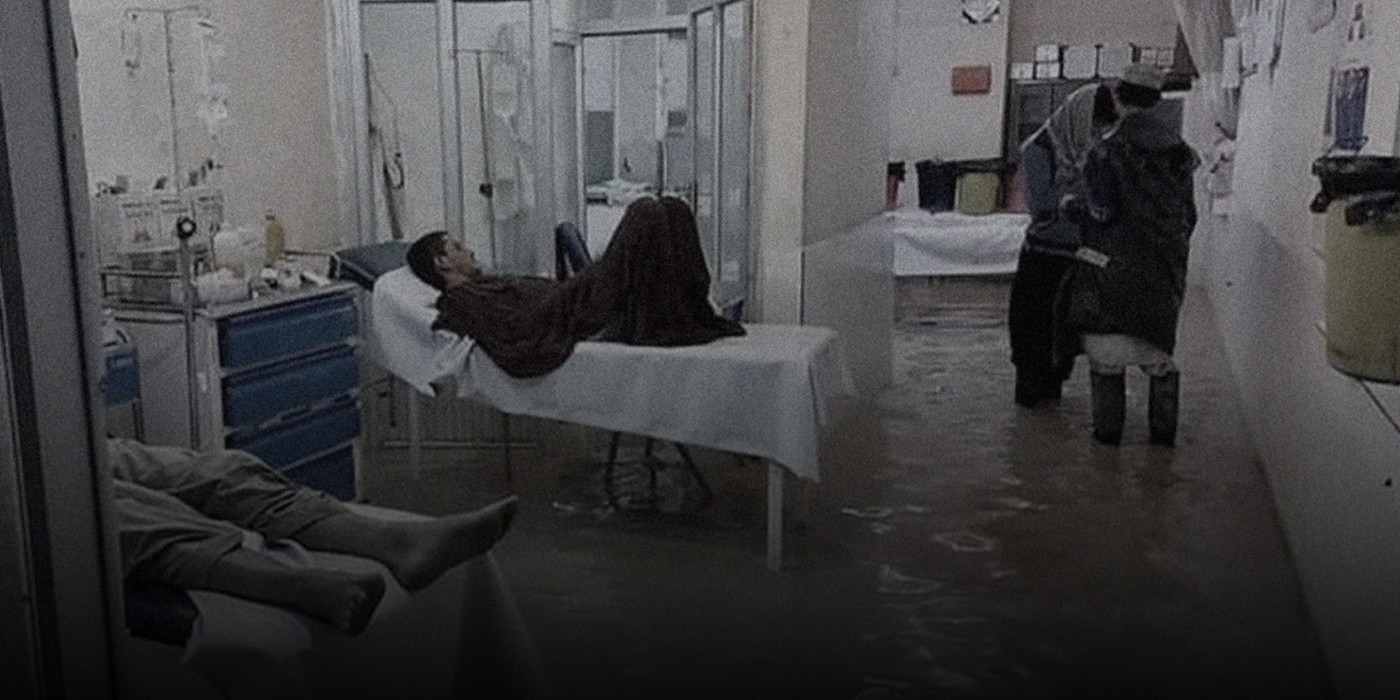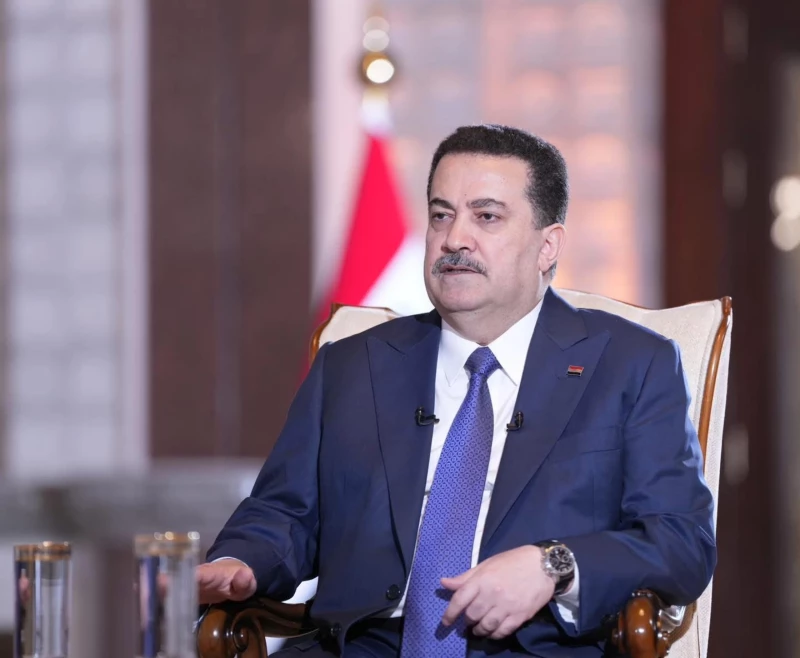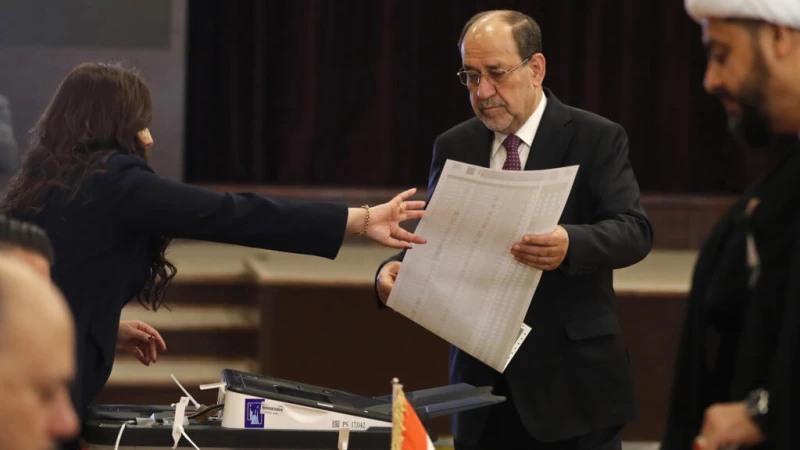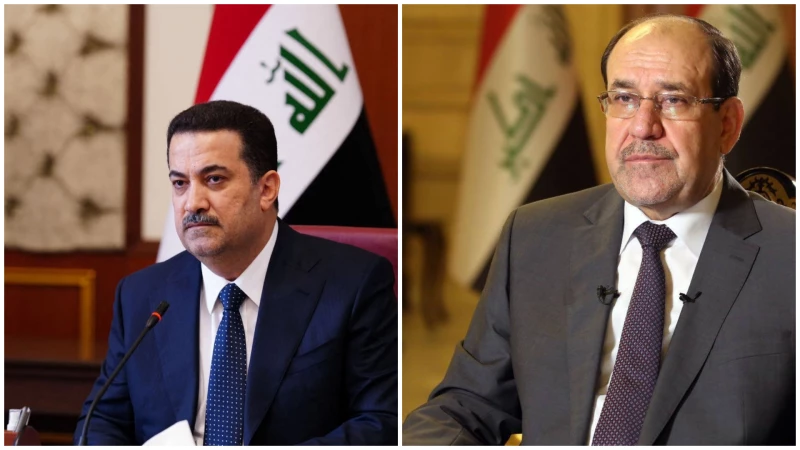I'm on a quest to find a silver lining within government hospitals, striving to bolster their efforts while consciously avoiding private healthcare facilities. My sincere intention is to champion the resources provided by the state, yet regrettably, I am met with disappointment at every turn.
What does it signify when you find yourself scrambling ahead of floodwaters about to breach the very hospital you've sought for healing and sanctuary from illnesses? What does this indicate?
Mohammed al-Baderi, aged 28, said that his next visit to Yarmouk Teaching Hospital, one of Iraq's longstanding medical institutions, will mark the end of an era. The hospital, a fixture of Iraq's healthcare landscape, succumbed to inundation and submersion within a mere two-hour downpour.
“What if our nation endured perpetual rainfall? It would spell the collapse of our entire infrastructure, erode the foundations of governance through corruption, and jeopardize the lives of our nation's youth,” he wonders.
As floodwaters inundated the hospital, a palpable sense of shock swept over the faces and emotions of its occupants. With nowhere else to turn, the remnants of the rain infiltrated the hospital, prompting patients to question: Who will genuinely prioritize their well-being beyond just their physical health? If the very sanctuary they seek is in dire need of greater attention.
This scenario is quite familiar—the decaying infrastructure has consistently made its presence felt in the most straightforward of circumstances.
Numerous hospitals have been plagued by flooding, fires, structural collapses, or shortages of medications, equipment, and beds. Yet, it is the repetition of these scenes that truly drives home the harsh reality for citizens.
Dr. Saja al-Qulmaji, aged 29, sheds light on the collapse within the Ministry of Health, indicating that it extends beyond mere physical structures.
Gradually, citizens have started losing faith in government hospitals, their treatments, and even their physicians. Many have turned to private hospitals and non-Iraqi doctors, willing to shell out millions of dinars for their family's well-being. Our hospitals only stock medications for common ailments like diabetes and hypertension.
"Citizens wait for weeks, if not months, just to schedule procedures such as surgeries, MRIs, ultrasounds, or even basic examinations. Emergency surgeries entail months of waiting. What recourse do those without adequate funds have?" Qulmaji asks.
Qulmaji further elaborates in her discussion with The New Region, noting that a significant portion of patients opt to seek medical treatment abroad in countries like India, Lebanon, Jordan, and Turkey. They are willing to invest substantial sums to receive care outside the confines of government healthcare institutions.
The Ministry of Health has remained silent on the flooding incident at Yarmouk Hospital. This is not the first occurrence of such incidents, as hospitals like Bint al-Huda Hospital in Nasiriyah, Republic Hospital in Mosul, and Maternity and Children's Hospital in Diwaniyah have all faced flooding at different times in the past.
Ongoing Projects
Earlier, Majid Shingali, the head of the Parliamentary Health and Environment Committee, affirmed that healthcare allocations in the general budget totaled 10 trillion and 7 billion dinars, representing 5 percent of the overall Iraqi budget.
Shingali also reaffirmed in previous statements that last July was set to kick off the implementation of the healthcare insurance system, anticipated to provide extensive services to citizens. The initial phase was scheduled to involve about 300,000 residents of Baghdad, constituting roughly 10 percent of the population. However, the rollout of the implementation was delayed until early 2024 and has yet to begin.
Additionally, it has been clarified that efforts are ongoing to oversee the management of 6 exceptionally large hospitals through the PPP (Public-Private Partnership) system, in cooperation with the private sector, with the goal of delivering top-tier services.
These hospitals are intended to rival the services offered by private hospitals, and none of the projects have been completed thus far.
As the population grows and according to statistics from the World Bank, the number of hospital beds per person has decreased from 1.9 beds per 1000 Iraqis in 1980 to just 1.3 beds per 1000 in 2017.
A worker at the Ministry of Health, who preferred to remain anonymous, emphasized that the Iraqi media overlooks the positive strides the government is making.
"The crumbling infrastructure has been a long-standing issue, akin to ticking time bombs ready to detonate at any moment. Wars have further diverted attention from all facets of the state, not just healthcare," he noted.
Prime Minister Mohammed al-Sudani recently announced the initiation of construction for six new hospitals across six provinces, signaling Iraq's genuine steps towards reconstruction.
Moreover, the successful opening of al-Hakim Teaching Hospital in Maysan and significant progress on al-Hurriya Hospital, boasting a capacity of 400 beds, indicate tangible advancements in healthcare infrastructure, slated for completion by year-end.
It is also confirmed that there is a budgetary plan to establish 15 hospitals, each with a capacity of 100 beds, at district level in the provinces.
Additionally, financial allocations have been earmarked for specialized health centers dedicated to treating diseases such as heart disease, cancer, providing care for sensitive medical conditions, and addressing addiction.
Has rescue arrived too late?
"But all these projects have come too late after twenty years. There is no justification for all this," states 36 years old Ahmed al-Salehi.
He adds that those unable to travel or afford the costs of private hospitals have collectively suffered due to the collapsed healthcare system.
"Many cases have died in government hospitals due to lack of treatment or even beds, with some staff members lacking professionalism, whether doctors or nurses, exhibiting harsh behavior, as if they are holding everyone who comes to them accountable for giving them extra work," al-Salehi explains.
He further notes that some doctors are aware of the situation and do not provide real services to patients in the government hospitals where they work. Instead, they suggest that patients visit their private clinics for better treatment.
“The reconstruction efforts are being carried out in a patchwork manner, rendering them futile or of limited utility that does not assist patients and lacks proper effectiveness," explains al-Salehi.
He points out that there is no addition to the infrastructure; instead, they rely on superficial and temporary renovations, which reveal their fragility at the slightest hint of rain.
"Despite the funds allocated to address the issues of the Iraqi healthcare system, they are merely statements that cannot be seen on the ground," al-Salehi said.. "Citizens still rely on hospitals built fifty or sixty years ago."
In a previous statement, Iraqi Health Minister Salih al-Hasnawi affirmed the government's plan to build hospitals, involving the construction of new buildings.
Some of these hospitals will be inaugurated this year, while others are still under construction and have reached advanced stages," he said.
He further noted that the construction of al-Fadhila Hospital, with a capacity of 200 beds, is currently underway to serve extremely deprived areas east of Baghdad, such as al-Maamal and al-Fadhiliya, which are almost devoid of hospitals and only have popular clinics.
The website 'Numbeo,' known for its focus on the quality of life in countries worldwide and healthcare standards, has ranked Iraq as the third worst country globally in terms of primary healthcare. According to its 2023 report, Iraq ranked third worst out of 94 countries listed in the table.
Neurosurgeon Mohamed al-Rawi underscores that enhancing Iraq's healthcare system is inextricably linked with combating the pervasive corruption that has plagued the sector for years.
Addressing corruption is pivotal; without it, healthcare reconstruction remains elusive, leading instead to a wasteful drain of funds and citizens' time, as they cling to the hope of bettering their hospitals.
"Stepping into a government hospital, your morale plummets. What is this? The facilities are unclean, the walls are grimy and contaminated. The hospital exposes you to new diseases and viruses, exacerbating the existing conditions," al-Rawi laments.
He points out that doctors grapple with a dire shortage of medical supplies. "Some resort to dipping into their own salaries to procure medical protective gear, masks, and even bathroom disinfectants. It is all falling apart."
Al-Rawi underscores to The New Region that successive governments have made countless promises regarding hospital rehabilitation, construction of new facilities, and provision of modern medical supplies, only to witness a cycle of disappointment and stagnation.
"However, I am genuinely optimistic this time. I witness numerous projects nearing completion, and we aspire to break free from the era of stagnation, corruption, and truly align ourselves with the advancements in the medical and healthcare field,” he said. “This endeavor extends beyond Baghdad to all provinces, particularly the southern ones, which grapple with collapse, compelling citizens to undertake long journeys to access alternative hospitals in Baghdad.”



 Facebook
Facebook
 LinkedIn
LinkedIn
 Telegram
Telegram
 X
X


